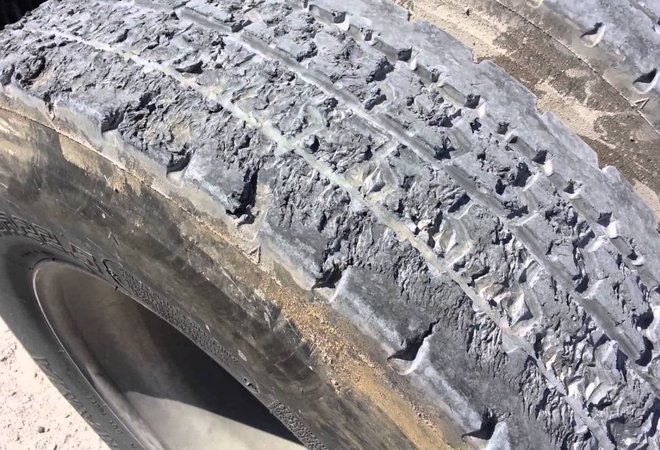In Romania, the law obliges us to have a car with winter tires when we drive on a road covered with ice, snow or ice. But it does not force us to have special summer tires when we go in summer, on dry or wet asphalt. Which is why the number of drivers who drive both in winter and in summer with winter tires is huge. But why not go with the same tires in the summer as in the cold season?
1. Worse summer braking with winter tires
People get the wrong impression that summer tires brake better in summer than special ones dedicated to this season. Nothing could be further from the truth. For two reasons: too soft material and a tread with spaced blocks. First of all, winter tires have a special material that allows them to keep their elasticity and grip when it's cold. But when it is too hot, when it is 35 degrees outside and around 60 on the ground, the material becomes extremely elastic and at any violent braking, instead of providing adhesion, it will remain on the asphalt with long traces of black rubber. That is, instead of stopping the car, it will wear out prematurely. Secondly, the design of the tread in the case of winter tires is specially designed to provide grip on snow, ie it has spaced blocks. And this is not good for braking on dry asphalt when it is hot. Take slick tires as an example: they have no grooves or blocks at all, just to give a great grip. If we suddenly brake in the winter with winter tires, the spaced blocks will get closer to each other on contact with the asphalt, but they will not collide so easily with each other, giving the tire a low grip. Summer tires have the blocks close together and when we brake, they get stuck between them and the contact with the asphalt is higher.
2. It wears off incredibly fast
As I said above, if we go in the summer with special winter tires, we will wear them prematurely. Especially when we make turns on the spot or when we make parking maneuvers at low speed, but also when we brake violently. But even when we drive normally, on the highway, at high speed, we do not get rid of the faster wear of winter tires due to the higher temperature. At speeds of over 100 km / h, due to contact with the asphalt, the tire heats up and deforms, causing premature wear of the sidewalls. A winter tire is not meant to be used for such a long time with such a high temperature and the material loses its qualities and wears out. So, no matter how we drive, the winter tire lasts only two years if we use it non-stop.
3. Increased risk of explosion
Because the material from which a winter tire is made has been designed for lower temperatures, when we subject such a tire to daily use during the summer, we are only ruining its properties. Especially if we use it in winter and summer without taking it off the rim. This is how cracks appear, which at first are only on the surface, and then go deep. If you saw pieces of tires on the highway, they are generally from trucks, but also from cars whose tires have disintegrated because the material was no longer elastic and cracked. That is, if we stubbornly use winter tires in the summer, at some point we may find that one of them explodes. And if you are wondering why, this is the reason: the material was prematurely aged.
4. Poor behavior on wet asphalt
Summer tires have the best rating, according to those from TUV, in the case of behavior on wet roads, ie in the rain. The profile of summer tires is specially designed to drain water well and reduce the risk of aquaplaning at high speeds and cornering. But not a winter tire, which is initially designed for good grip on snow, not necessarily on water-covered asphalt. So a winter tire, because it has wider ditches, more distant blocks, allows water to accumulate below the contact surface and we risk having aquaplaning. Obviously, we are talking about high speeds, not normal speeds or normal traffic situations. And winter tires go in the rain, as long as we don't step on the pedal too hard. Because they were designed to be used in the winter, when the traffic is slower anyway.
5. In conclusion, we throw money out the window!
No matter what you say, if you use winter tires in the summer, it's clear you're throwing money out the window. You have the impression that you are saving, because you no longer buy a special summer set, but the risks are not worth the apparent economy. In addition, instead of keeping the winter set for 4-5 seasons, it will only last you a maximum of two, because you use it in the summer, so it's the same thing. We are no longer talking about the situation in which you have some cheap winter tires, from a dubious manufacturer. In this case, you will not have good braking or grip and you will be without them even faster. But if you do not take into account the fact that you throw money at the window, at least take into account the safety of you and the passengers in the car. No wonder normal people use special tires for every season and not the other way around, right?







